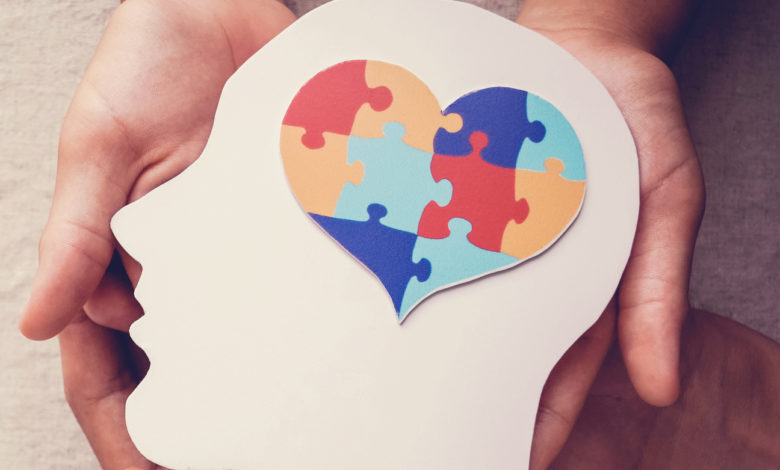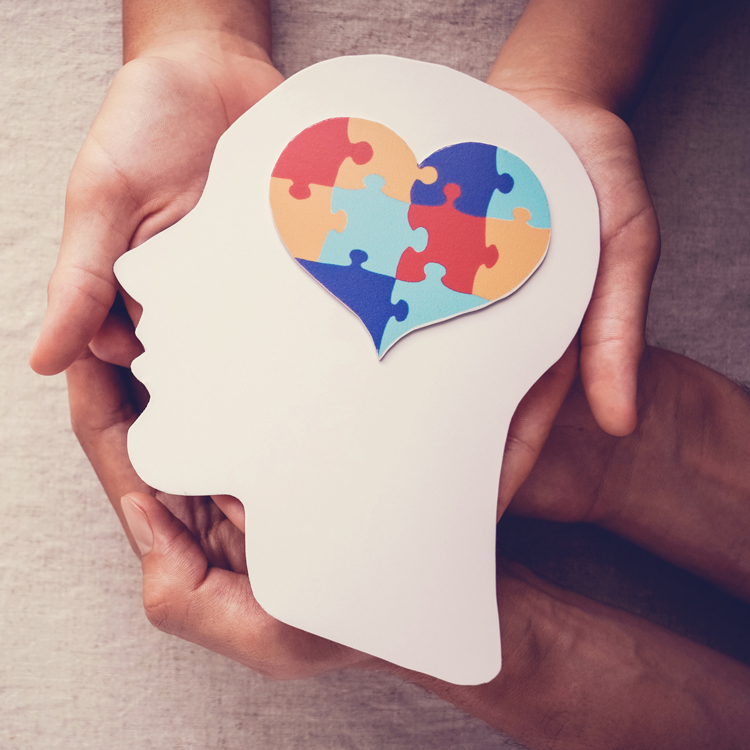
From Awareness to Action
How to create change after acknowledging the importance of mental health.

October is Mental Health Awareness Month—an opportunity to have some focused conversations about mental-health conditions such as depression, anxiety, and substance-use disorders. Ultimately, these conversations should inspire us to work toward breaking down silence and dismantling the shame and stigma that keep so many from seeking mental-health care.
But while promoting awareness of mental health is certainly an important step, actually creating wellness is impossible without meaningful action.
Mindful Minds Are Happier Minds
Mental health isn’t only about engaging in therapy or taking an antidepressant medication. Although these can certainly be vital components of an active mental health and wellness strategy, they work even better when combined with a lifestyle that includes mindful reflection and attention to healthy habits.
Although your electronic devices can sometimes be an unwelcome and unhealthy distraction, that technology can also help you reconnect with yourself. Apps like Headspace or Calm teach the skills and practice of meditation in the quiet of your own home. Smart watches can prompt you to take a minute to simply breathe. If you don’t have a smartphone or watch, don’t worry—a good old-fashioned alarm clock works just as well to remind you to take a moment and pause during your busy day. Use your lunch hour or break times to eat and to recharge—it can help make the afternoon go by much more smoothly.
Sleep Hygiene 101
If insomnia is an issue, practicing good sleep hygiene can help you to fall and stay asleep. For starters, using your bedroom for activities other than slumber and sex can inadvertently train the brain to stop associating your bed with sleep. Avoid eating, reading, or watching television in bed to start breaking out of your old sleep patterns.
Establish a consistent sleep schedule and bedtime routine. Even though it might be hard at first, setting a consistent bedtime will help ensure adequate rest. As part of your bedtime routine, consider a cup of hot decaf tea before brushing your teeth. Limit your time on electronic devices, since the blue light from your phone or tablet can disrupt your circadian rhythm.
If these strategies aren’t helpful, google ‘sleep meditation’ to find videos or podcasts that can help calm your mind as you wind down. There are literally hundreds of videos that serve as sleep aids. Maybe the sound of a babbling brook or ocean waves works best for you. If the sounds of nature aren’t your thing, then try guided meditation that focuses on your breath, or scans the body for areas of tension to release. While it may take some trial and error to find the right combination of sleep aids that help you to relax into sleep, the payoff can definitely be worth it. Also, if waking up in the middle of the night is your challenge, having one of those podcasts queued up and ready to play can mean the difference between being up for 20 minutes or 2 hours.
Choosing Healthy Habits
In some circles, COVID-19 has come to refer to the amount of weight gained during several months of pandemic living. We’ve also seen dramatic increases in alcohol and drug use as temporary escapes during this period. With our decreased feelings of safety and comfort in navigating public spaces, we’ve become reluctant to return to the gym or to our group workouts.
Stress-eating has become a feel-good distraction in these uncertain times. Choosing a healthier diet and increasing activities like walking can reduce overall stress levels. Alcohol can worsen depression and anxiety, so monitoring your intake—and the impact it has on your mood—could be an important first step in determining if your drinking is a problem.
And don’t forget to seek out and try hobbies, both old and new. These times of pause are opportunities to discover activities that can improve your sense of self and create connections with others. What activity can you try this month?
Seeking Help
If you have tried some of these simple strategies and they just don’t seem to be doing the trick, seeking professional help is the next logical step. Developing a solid working relationship with a therapist or psychiatrist could be the best way to move from mental-health awareness to action this month.
Frankly, you don’t have to wait until a time of crisis in your life to seek mental-health treatment. Some of the most important work you can do with a therapist or counselor takes place during times of relative calm, since your mental energy can be devoted to reflection and deeper work. Plus, it’s a good practice to be in therapy consistently so that when times of crisis do occur (as they will for all of us), you won’t have to wait one to three months to get in to see a provider.
This article appears in the October 2021 edition of OutSmart magazine.











Comments